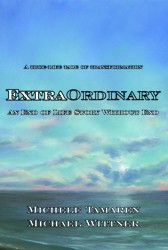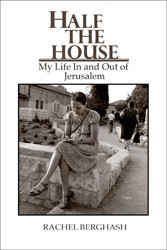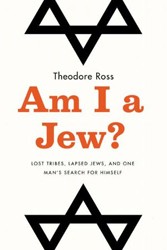A Sense of Direction is an extended meditation in memoir-and-travelogue form on the author’s struggles to find purpose and meaning in life, and to forgive his rabbi father for having neglected and deceived him, his brother, and his mother, both before and after coming out as a homosexual. As the book opens, Lewis-Kraus, an American writer, is in his late twenties, dissatisfied with his bohemian life in Berlin, yearning for love but only sleeping with other men’s girlfriends, stalling in his career, and anguishing about whether he’s living life fully enough.
In a drunken moment, he agrees to hike the Camino de Santiago, a traditional Catholic pilgrimage around northwestern Spain, now a popular secular endeavor. The journey, taken with his friend Tom, both tries and deepens their friendship, and creates a space and structure from which Lewis-Kraus can better understand his life. Subsequently he makes another secularized pilgrimage, this time around the island of Shikoku in Japan, with his father’s father joining him for part of the trip, and after this voyage, he invites his younger brother and his father to join him over Rosh Hashana on a trip to the Ukraine to the gravesite of the Hasidic leader Rabbi Nachman, a journey that draws thousands of religious Jewish men every year.
Lewis-Kraus understands pilgrimage as having always been more than merely a spiritual quest: it is also a pretext to leave home, to do what we want to do, to have “a series of structured days,” and to “step outside of all roles and just be a person, someone without responsibilities or any constraint besides continuous forward movement to a distant goal.” He writes that “the Camino isn’t at all about freedom from restraint, but freedom via restraint,” and that there was “at once a feeling of decisiveness and a feeling of liberation from the anxiety of decision.”
The book is an entertaining, non-romantic depiction of travel and a philosophical exploration of the psychological forces that propel and inhabit it, and that are unleashed, forged, or transformed through it. Lewis-Kraus is intensely self-conscious about what he does as a traveler and as a writer, and there’s something courageous and magnificent yet simultaneously unkind and undignified about writing so intimately about his still-living father with whom, over the course of the book, he comes, through great effort, to a place of acceptance and understanding. Certainly his emotional nakedness is compelling, and offers the reader splendid insights into the imperatives of forgiveness, growing up, and moving forward.

Nonfiction
A Sense of Direction: Pilgrimage for the Restless and the Hopeful
- Review
By
– April 23, 2012
Eric Ackland is a freelance writer.
Discussion Questions

Jewish literature inspires, enriches, and educates the community.
Help support the Jewish Book Council.


